Strictly Personal
Suddenly, I felt empty without my mobile phone by Ehi Braimah
Published
3 years agoon
Family, friends and associates gathered last Thursday at Hillcrest Event Centre in Okota, Lagos, for the service of songs in honour of Dr. Emmanuel Sunny Ojeagbase — popularly known as SO to his media colleagues — who passed away in Atlanta, Georgia in the United States on February 26.
Before the service began, I met top sports journalists, Larry Izamoje and Isaac Ibhafidon. There were other former colleagues who bantered with each other and we used the opportunity to play catch up. I was a former employee of Complete Communications Limited, courtesy of SO’s large heart and kindness before I moved on to other responsibilities.
The service of songs was right on schedule at 4.00pm. Later, my wife joined me from her cousin’s event which was held at Ire-Akari Estate – a shouting distance away. By the time the service ended two hours later, it was time to share more banters with familiar faces that included Segun Odegbami, Mike Awoyinfa, Dada Ajai-Ikhile, Franklin Ilaboya, and members of the Ojeagbase family.
I took one of my phones containing my MTN and 9mobile numbers with me into the hall but the last thing on my mind was that the phone would be stolen by a pickpocket. Taking the phone with me turned out to be a costly mistake. I’m usually never in the habit of taking my phones with me to such places – not even when I attend church services; I keep the phone far away from me. My attitude is that all calls and messages can wait — for a few hours. After all, we survived when we didn’t have mobile phones.
Personally, I do not believe it is a good idea to take the mobile phone or tablet into the church, a place of worship where we should reverence God in all his holiness. But again, you cannot really fault those who do so because we are in the tech age where the digital version of the bible – one of the apps downloaded from Google Play or the app store – is stored on those devices.
I have never lost a phone since 2001 when the mobile telecommunications revolution began. You can lose a phone or it can be stolen – they don’t mean the same thing. Once I have used a phone for about three to four years, I get another one and pass on the old handset to the next lucky beneficiary.
But this time, I lost my Samsung mobile phone to a thief immediately after the service of songs ended. These thieves are at every event – birthdays, weddings, services of songs, worship centres, and so on. Most of the time, they appear like “important” guests, uninvited but well dressed for the occasion; they are criminals going after the personal effects of invited guests.
Unfortunately, CCTV cameras are not installed in most of these venues by the owners. Masters of ceremony at such functions and social events should constantly remind their audiences to secure their mobile phones and other personal effects from the prying eyes of misbegotten gatecrashers and thieves at these parties.
Why did I take my mobile phone with me into the hall? Well, let us just say that I broke one of my “fundamental rules” and paid dearly for it. But you cannot blame me because I was expecting my wife to call me as soon as she arrived at the venue from her cousin’s place. And she did and joined me after I told her where I was sitting in the hall. It was the last call I received before the phone was stolen.
I was careless to have left the phone inside the left pocket of my Ankara attire, the one Yorubas call Buba and Sokoto. It was inside the left pocket of my Buba. Throughout the service, I knew the phone was with me. But when the service ended, I only took a few steps to exchange pleasantries when, instinctively, I reached out for my phone but it was gone and switched off by the thief.
“Is my phone with you,” I asked my wife, half-heartedly, to be sure even when I could recollect I never gave her the phone. At this time, Tajudeen, our driver, had the takeaway hospitality packs with him. “Please check the packs,” my wife, who was still in shock, instructed Tajudeen just to erase every doubt.
The phone was nowhere to be found. I was confused. Before we left the venue, I told Mumini Alao, Julius Ojeagbase and Thomas Ayodele, my former colleagues at Complete Communications, that my phone had been stolen. The mood changed and feelings of sympathy were expressed. Mumini, Thomas, and I still relate very well as brothers and we stay in touch regularly.
I was initially angry with myself for my carelessness and I became distraught because I knew the inconveniences that would follow retrieving the lines. Although she was feeling bad, my wife pleaded that I should not be too hard on myself. “Don’t worry, you will get another phone tomorrow,” she assured me, trying to calm my nerves. It turned out that the thieves also stole mobile phones belonging to other guests; I was not the only victim.
Throughout the journey from Okota to Ikeja, I was unhappy for being a victim. It could have been avoided. In my reckoning, the effort was like a stroll in the park for the pickpocket. My second mobile phone – containing Glo and Airtel lines – was in the car. But my MTN line that is as old as the network is my mobile office; if you get my drift. All the relevant apps are stored on the phone.
When MTN marked its 10th anniversary, I was honoured as a valued customer with gifts and a carefully worded “Thank You” letter, an exercise that I ranked as excellent public relations. MTN has continued on that path to this day.
My first mobile phone handset ever was the famous and sturdy Nokia 3310. Do you still remember the popular and iconic ring tone booming from the handset each time it rang? It was a phrase from ‘Grand Vals’ (12 – 14 secs), a Spanish classical song composed by guitarist and musician Francisco Tarrega. Well, that was back in the day –- 21 years ago.
Suddenly, I did not have access to WhatsApp which meant that I could not chat, send or receive messages. WhatsApp, as we all know, is a versatile and robust medium of communication for everyone, no matter the person’s status. WhatsApp is a fast, sure and real-time platform for engagement and conversations by individuals and groups — as long as they have access to the internet.
WhatsApp is owned by Facebook, now Meta. Mark Zuckerberg, chief executive of the company in his expansionist drive, acquired WhatsApp. Computer engineers Brian Acton and Jan Koum were young college students in their 30s but cofounded messaging application, WhatsApp, in 2009. They met previously at Ernst & Young, and much later at Yahoo! where they worked together. Acton and Koum launched the app five years after Zuckerberg created Facebook on February 4, 2004.
Then on February 19, 2014, Facebook announced it was acquiring WhatsApp when it was five years old for US$22 billion in cash and stock – its largest purchase to date. Facebook is also the owner of Instagram which the company bought for US$1 billion 18 months after IG was launched.
It is not always a good experience when mobile phones are stolen because of our emotional attachment to the phones. For several reasons, your mobile phone is your companion and personal assistant because the phone is always with you wherever you go. When it is stolen or whether you declare it missing, you instantly feel that a part of you is missing – that sense of loss surrounds you and literally eats you up as if oxygen is draining out of your body.
The phone can be a major source of distraction but can we do without it? According to the Nigeria Communications Commission (NCC), there are over 198 million mobile (GSM) active lines in Nigeria which translate into a huge pot of gold for the telecoms operators. Internet penetration is understandably massive in Nigeria and the numbers keep growing each year. MTN, Glo, Airtel and 9mobiles are the main players in the sector and I’m a customer of the four networks.
Semiu Okanlawon, a journalist and media consultant, said we have a “spiritual connection” to our mobile phones. “It is like owning a dog which is showered with a lot of affection as if it were a human being,” Semiu told me the day after my phone was stolen.
He had a similar experience in Iwo, Osun state, at the wedding reception of his niece but the story of Michael Effiong James, editor of Ovation International magazine, was different. “Instinctively, I felt emptiness around me,” Semiu remembered after a pickpocket stole his phone. He had also placed the phone inside the left pocket of his Buba but he was lucky to have apprehended the thief who was given the beating of his life by angry bystanders.
Michael was unlucky in his encounter with men of the underworld but he is lucky to be alive. After taking him around Lagos for more than four hours in the dead of the night as if it was a James Bond movie, the Ovation editor lost his car, cash, laptop and mobile phone to the armed robbers.
The interesting thing was that he found his phone when the police stepped into the matter. His car was also recovered. Mike told me he was mightily impressed with the police for their professional and thorough investigation. With the help of technology, most of our teething problems can be solved. Mike’s phone was tracked by the police using the IMEI code and the thief or receiver of the phone was caught. It will work for you if you are able to store the code in a safe place. In my case, I did not but it is a useful lesson.
In truth, it is difficult to shake off the mobile phone and pretend as if it is not important. When you are without your mobile phone or if the battery is flat because you are unable to charge it, you actually feel like a fish out of water.
In my own case, I’m completely cut off from the rest of the world but I have had to fall back on my Glo and Airtel lines since last Thursday. When I visited the Friendship and Customer Care Centres of MTN and 9mobile the next day and Saturday, I could not retrieve my lines because the National Identity Management Commission (NIMC) portal was down.
If it is a new sim card, registration can be done offline but you would have to wait for at least 72 hours for the line to be fully activated through the NIMC portal. However, if it is an old sim card like mine, the number must be re-validated on the NIMC portal before a sim swap can be enabled.
For security measures, please ensure that your mobile phone is passworded with a mix of numbers and alphabets, finger print or facial recognition. You should also password your WhatsApp and bank apps where it is applicable. Once your phone is stolen, the first thing to do is block the numbers and go through the process of restoring them, but pray that the NIMC portal does not slow you down.
Even when you lose your phone, the good thing is that you can retrieve all your data and information if you stored them digitally in the cloud. Google, for example, provides secure and durable storage for free – but only up to a threshold after which you are required to pay for the service.
I must confess that the customer relations executives were very helpful. Rosemary, Tolu and Michael at MTN and the duo of Stanley and Adebola at 9mobile displayed excellent work attitude when I visited their Friendship Centres. I salute their cooperation, commitment and sense of industry.
My two lines should have been fully restored the next day – under “normal circumstances”. That was my expectation, but I was only able to activate the lines 72 hours after my phone was stolen. Until you are able to scale the NIMC portal hurdle for revalidation of your information, telecoms operators cannot proceed to the next stage in order to retrieve your telephone numbers.
Thankfully, the NIMC portal, with its “bi-polar behaviour” like the British weather, allowed for my sim swap and successful registration after several attempts by the dutiful MTN staff on Sunday.
Braimah is a public relations strategist and publisher/editor-in-chief of Naija Times (https://naijatimes.ng)
You may like
-
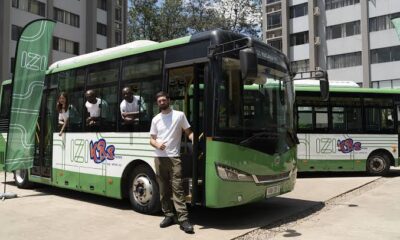

Rwanda’s e-mobiility startup IZI expands electric bus fleet after getting grant from Green Fund
-
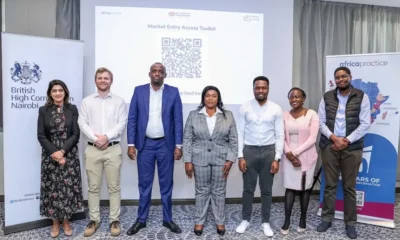

UK-Kenya Tech Hub launches digital toolkit to help African entrepreneurs access markets
-


SA logistics startups to present pitch at Last Mile Innovation Nexus event
-


Dangote Refinery: A timely win for industrialisation, By Abiodun Alade
-


South Africa’s startup Cue launches AI Agents service to enhance customer service
-


Mpox crisis: We need an equity-driven pandemic treaty, By Magda Robalo
Strictly Personal
Economic policies must be local, By Lekan Sote
Published
7 hours agoon
October 24, 2024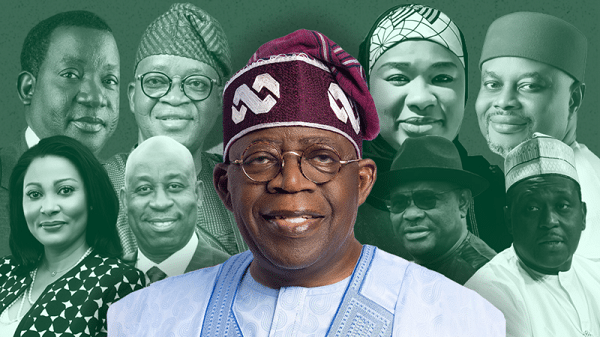
With 32.70 per cent headline inflation, 40.20 per cent food inflation, and bread inflation of 45 per cent, all caused by the removal of subsidies from petrol and electricity, and the government’s policy of allowing market forces to determine the value of the Naira, Nigerians are reeling under high cost of living.
The observation by Obi Alfred Achebe of Onitsha, that “The wellbeing of the people has declined more steeply in the last months,” leads to doubts about the “Renewed Hope” slogan of President Bola Tinubu’s government that is perceived as extravagant, whilst asking Nigerians to be patient and wait for its unfolding economic policies to mature.
It doesn’t look as if it will abate soon, Adebayo Adelabu, Minister of Power, who seems ready to hike electricity tariffs again, recently argued that the N225 per kilowatt hour of electricity that Discos charge Band A premium customers is lower than the N750 and N950 respective costs of running privately-owned petrol or diesel generators.
While noting that 129 million, or 56 per cent of Nigerians are trapped below poverty line, the World Bank revealed that real per capita Gross Domestic Product, which disregards the service industry component, is yet to recover from the pre-2016 economic depression under the government of Muhammadu Buhari.
This has led many to begin to doubt the government’s World Bank and International Monetary Fund-inspired neo-liberal economic policies that seem to have further impoverished poor Nigerians, practically eliminated the middle class, and is making the rich also cry.
Yet the World Bank, which is not letting up, recently pontificated that “previous domestic policy missteps (based mainly on its own advice) are compounding the shocks of rising inflation (that is) eroding the purchasing power of the people… and this policy is pushing many (citizens) into poverty.”
It zeroes in by asking Nigeria to stay the gruelling course, which Ibukun Omole thinks “is nothing more than a manifesto for exploitation… a blatant attempt to continue the cycle of exploitation… a tool of imperialism, promoting the same policies that have kept Nigeria under the thumb of… neocolonial agenda for decades.”
When Indermilt Gill, Senior Vice President of the World Bank, told the 30th Summit of Nigeria’s Economic Summit Group, in Abuja, Federal Capital Territory, that Nigerians may have to endure the harrowing economic conditions for another 10 to 15 years, attendees murmured but didn’t walk out on him because of Nigerian’s tradition of politeness to guests.
Governor Bala Muhammed of Bauchi State, who agrees with the World Bank that “purchasing power has dwindled,” also thinks that “these (World Bank-inspired) policies, usually handed down by arm-twisting compulsions, are not working.”
What seems to be trending now is the suggestion that because these neo-liberal policies do not seem to be helping the economy and the citizens of Nigeria, at least in the short term, it would be better to think up homegrown solutions to Nigeria’s economic problems.
Late Speaker of America’s House of Representatives, Tip O’Neill, is quoted to have quipped that, at the end of the day, “All politics is local.” He may have come to that conclusion after observing that it takes the locals in a community to know what is best for them.
This aphorism must apply to economics, a field of study that is derived from sociology, which is the study of the way of life of a people. Proof of this is in “The Wealth of Nations,” written by Adam Smith, who is regarded as the first scholar of economics.
In his Introduction to the Penguin Classics edition of “The Wealth of Nations,” Andrew Skinner observes: “Adam Smith was undoubtedly the remarkable product of a remarkable age and one whose writing clearly reflects the intellectual, social and economic conditions of the period.”
To drive the point home that Smith’s book was written for his people and his time, Skinner reiterated that “the general ‘philosophy,’ which it contained was so thoroughly in accord with the aspirations and circumstances of his age.”
In a Freudian slip of the Darwinist realities of the Industrial Revolution that birthed individualism, capitalism, and global trade, Smith averred that “How selfish soever man may be supposed, there are evidently some principle in his nature which interest him in the fortune of others, and render their happiness necessary to him, though he derives nothing from it, except the pleasures of seeing it.”
And, he let it slip that capitalism is for the advantage of Europe when he confessed that “Europe, by not leaving things at perfect liberty (the so-called Invisible Hand), occasions… inequities,” by “restraining the competition in some trades to a smaller number… increasing it in others beyond what it naturally would be… and… free circulation of labour (or expertise) and stocks (goods) both from employment to employment and from place to place!”
Policymakers, who think Bretton Woods institutions will advise policies to replicate the success of the Euro-American economy in Nigeria must be daydreaming. After advising elimination of subsidy, as global best practices that reflect market forces, they failed to suggest that Nigeria’s N70,000 monthly minimum wage, neither reflects the realities of the global marketplace, nor Section 16(2,d) of Nigeria’s Constitution, which suggests a “reasonable national minimum living wage… for all citizens.”
After Alex Sienart, World Bank’s lead economist in Nigeria, pointed out that the wage increase will directly affect the lives of only 4.1 per cent of Nigerians, he suggested that Nigeria needed more productive jobs to reduce poverty. But he neither explained “productive jobs,” nor suggested how to create them.
In admitting past wrong economic policies that the World Bank recommended for Nigeria, its former President, Jim Yong Kim, confessed, “I think the World Bank has to take responsibility for having emphasized hard infrastructure –roads, rails, energy– for a long time…
“There is still the bias that says we will invest in hard infrastructure, and then we grow rich, (and) we will have enough money to invest in health and education. (But) we are now saying that’s the wrong approach, that you’ve got to start investing in your people.”
Kim is a Korean-American physician, health expert, and anthropologist, whose Harvard University and Brown University Ivy League background shapes his decidedly “Pax American” worldview of America’s dominance of the world economy.
Despite his do-gooder posturing, his diagnoses and prescriptions still did not quite address the root cause of Nigeria’s economic woes, nor provide any solutions. They were mere diversions that stopped short of the way forward.
He should have advocated for the massive accumulation of capital and investments in the local production of manufacturing machinery, industrial spare parts, and raw materials—items that are currently imported, weakening Nigeria’s trade balance.
He should have pushed for the completion of Ajaokuta Steel Mill and helped to line up investors with managerial, technical, and financial competence to salvage Nigeria’s electricity sector, whose poor run has been described by Dr. Akinwumi Adesina, President of Africa Development Bank, as “killing Nigerian industries.”
He could have assembled consultants to accelerate the conversion of Nigeria’s commuter vehicles to Compressed Natural Gas and get banks of the metropolitan economies, that hold Nigeria’s foreign reserves in their vaults, to invest their low-interest funds into Nigeria’s agriculture— so that Nigeria will no longer import foodstuffs.
Nigerians need homegrown solutions to their economic woes.
Strictly Personal
For EAC states to excel, members should hire expatriate ministers, By Joachim Buwembo
Published
2 weeks agoon
October 11, 2024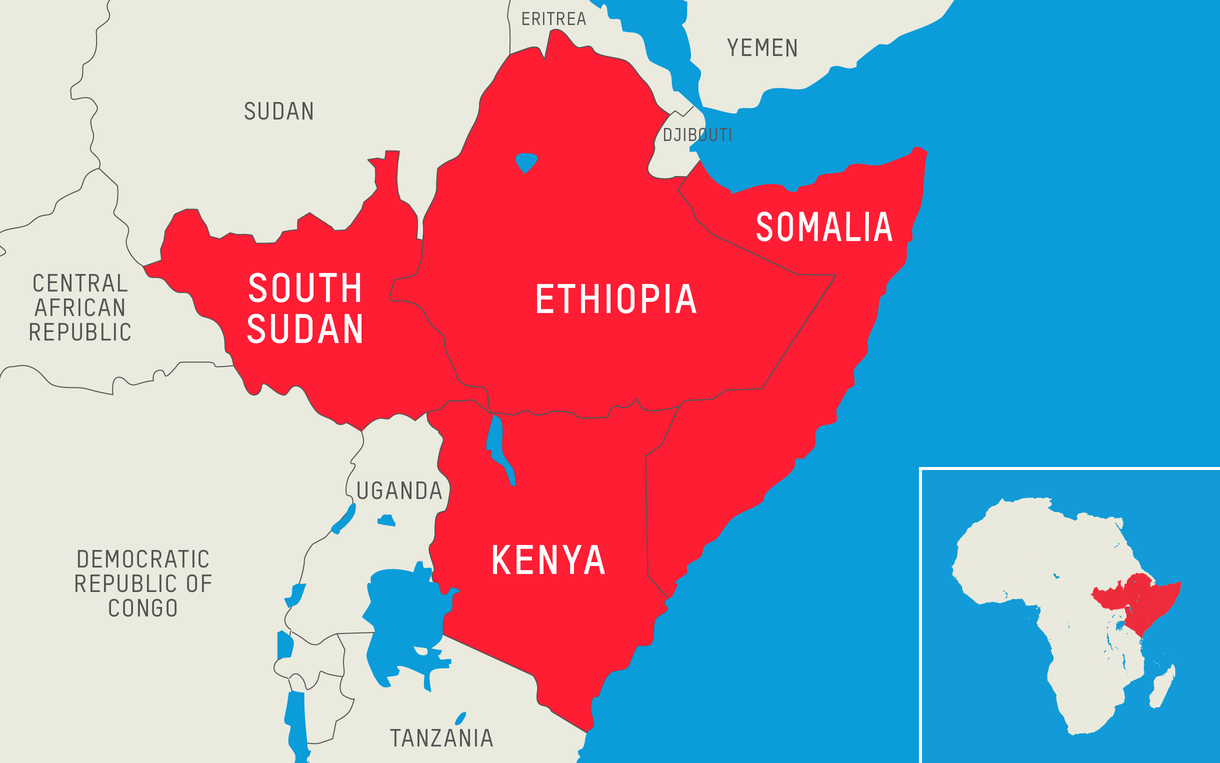
Next week, the East African Community, especially the original three members Kenya, Tanzania and Uganda, will be marking their revival Silver Jubilee, which is also an opportunity to reflect on 25 years after the passing of regional integration icon Mwalimu Julius Nyerere.
The integrationist and pro-federation Mwalimu would certainly be happy with the revival of the EAC. But how contented humanist Nyerere who committed his then poor country’s resources and lives to the emancipation of fellow Africans would be with the goings on in the region, can only be debated.
Hundreds of Tanzanian men and women at Nyerere’s command gave their lives so Ugandans would be saved from a dictatorship that attached low value to human life and “disappeared” political dissenters, with a few whose bodies were found having been disfigured sometimes with acid. In Kenya, extra-judicial executions of high-profile political dissenters were also being carried albeit with more sophistication than Uganda’s.
Should some people in Tanzania start derailing that lovely country backwards to catch up with the murderous Uganda and Kenya of the 1970s and criminalise the holding of different political views, then we would beg the EAC to find its manhood and insist that members start hiring expatriate ministers to man certain portfolios thus: For Justice and Law, expatriate ministers from the Scandinavian states would be preferable. But of course, beneficiaries of injustice and illegality would argue that ours are independent sovereign states; so to hell with protection of human lives.
For promotion of Trade and Tourism, expatriates from the United Arab Emirates would fit the bill. But of course, beneficiaries of poaching, smuggling and tax evasion would argue that ours are independent sovereign states; so to hell with expansion of trade and tourism.
For Industry, Indian expatriate ministers would do well to drive import substitution while creating millions of jobs in the region. But of course, beneficiaries of raw materials exportation and importation of consumer goods would oppose and argue that ours are independent sovereign states; so, to hell with the unemployed, human health and environmental protection.
For Finance and Economic Planning, Singaporean expatriate ministers would be appropriate, but of course beneficiaries of grand corruption and incompetence would argue passionately that ours are independent states; so let the taxes be stolen so the awful service delivery gets even worse while debilitating debts mount.
For Transport Infrastructure, expatriate ministers from the Netherlands would be suitable because integrated systems of air, rail, road and water were needed by yesterday, so that transport ceases being an obstacle and becomes an enabler of development instead.
But of course, beneficiaries dominant, inefficient transport modes will argue that we are independent, sovereign states; so let primitive transport systems and fragmented airspaces remain and keep the cost of living and doing business up.
For Energy, Japanese expatriate ministers would do the job to speedily guide our economies through the energy transition, and transfer technology like Chinese have done in Uganda to create local capacity to make electric vehicles.
But to drastically reduce reliance on fossil fuels some countries should consider hiring Ethiopian expatriate ministers who will know best how to say enough is enough, switch from internal combustion engines to electric.
US expatriate ministers can also be considered to help the adaptation of our aviation sectors to sustainable biofuel in addition to driving the processing of rare earth minerals into e-mobility batteries.
But profiteers from the poisoned fossil fuels would say we are independent and sovereign; so let fuel import bills remain high and the peoples’ health be damaged.
The all-important Education sector should without doubt be entrusted to expatriate ministers from Finland for wholesome development of our children.
But of course, the beneficiaries of the extortionist private schools and the cripplingly looted public institutions would argue that these are sovereign independent states; so let the children continue getting mentally stunted and unemployable.
And in Health, of course, the expatriate ministers should be from Sweden, to ensure that everyone accesses adequate health services. Expectedly, beneficiaries of public funds to secure treatment abroad and those who benefit from stolen medical supplies would argue that ours are independent sovereign states; so that the wanton deaths of children and mothers continue.
Give the Housing to expatriate Chinese ministers so we close the era of human beings living in pigsties. However, those who benefit from a disorganised, stunted housing sector would argue that we are independent sovereign states so the majority can continue living sub-humanly.
Joachim Buwembo is a Kampala based journalist. buwembo@gmail.com
EDITOR’S PICK
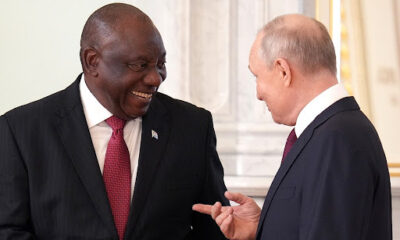

South Africa: Russia remains a valued ally, Ramaphosa tells Putin
At a bilateral meeting with Russian President, Vladimir Putin, on Tuesday, the eve of the BRICS summit of developing economies...


Canada’s First Quantum in pursuit of partners for Zambian assets
Without naming the companies, First Quantum Minerals, a Canadian miner, stated on Wednesday that it is in discussions with possible...


US requests probe into murders of two Mozambique opposition figures
The United States administration denounced the weekend deaths of two Mozambique opposition members, demanding a prompt and comprehensive inquiry ahead...


Economic policies must be local, By Lekan Sote
With 32.70 per cent headline inflation, 40.20 per cent food inflation, and bread inflation of 45 per cent, all caused...
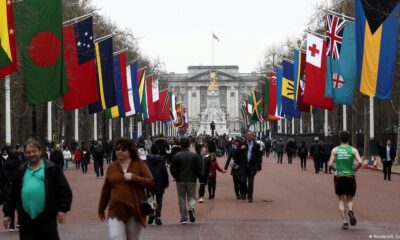

Britain says Commonwealth conference won’t discuss slavery reparations
Britain will not discuss reparations for historical transatlantic slavery at a Commonwealth conference that began in Samoa, but is open...
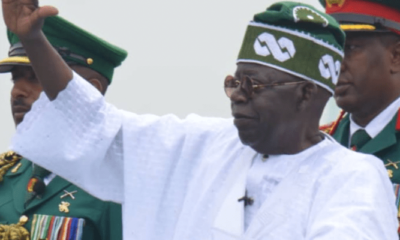

Nigeria’s Tinubu reshuffles cabinet
Following weeks of speculations around an imminent cabinet reshuffle in Nigeria, President Bola Tinubu on Wednesday dismissed six ministers from...


South Sudanese telcos increase tariffs as exchange rates soar
Telecommunication companies in South Sudan have been forced to increase their tariffs as a result of a hike in the...
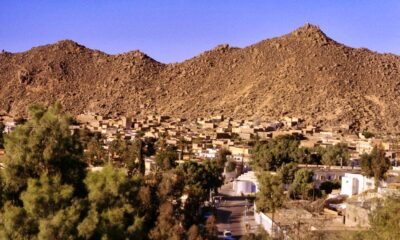

Two Algerians arrested over alleged murder of Swiss tourist
Algerian authorities have arrested two men in connection with the brutal murder of a Swiss tourist who was killed on...
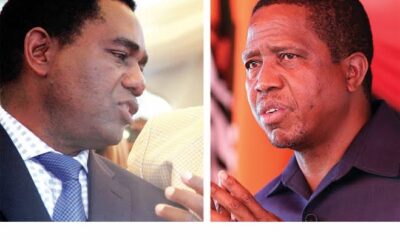

‘You’re better off in retirement, drinking in peace’, Zambian President taunts predecessor
Zambian President, Hakainde Hichilema, has told his predecessor, Edgar Lungu, that he should forget the presidency in 2026 as he...
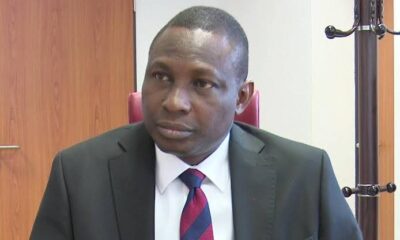

Nigeria: EFCC says country loses $500m to cybercrime annually
Chairman of Nigeria’s anti-corruption agency, the Economic and Financial Crimes Commission (EFCC), Ola Olukoyede, says the country loses over $500...
Trending
-

 Metro1 day ago
Metro1 day agoNigeria: EFCC says country loses $500m to cybercrime annually
-

 Metro23 hours ago
Metro23 hours ago‘You’re better off in retirement, drinking in peace’, Zambian President taunts predecessor
-

 Tech23 hours ago
Tech23 hours agoSouth Sudanese telcos increase tariffs as exchange rates soar
-

 Culture23 hours ago
Culture23 hours agoTwo Algerians arrested over alleged murder of Swiss tourist


